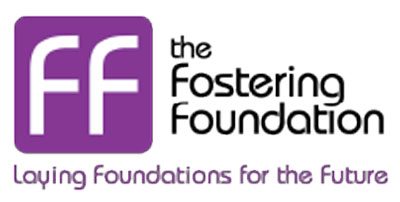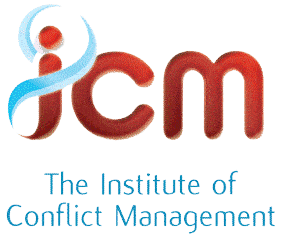
Training for Foster Carers
Training for Foster Carers, Adopters and Parents in Managing Challenging Behavior
Workshop-based Training and Guidance about De-Escalation and Last-Resort Protective Interventions with Children who present with Distressed or Dangerous behavior in the home environment.
Hundreds of safer clients...
LOCAL GOVERNMENT & CITIZEN SERVICES

about dynamis
Foster Care Services (and adopters supported by social workers) often look for two different levels of training:
1) De-Escalation and Crisis behaviour Training
and
2) Personal Safety and Protective Interventions Training
For years carers of children with emotional and behavioural difficulties have asked us for help with certain situations at home. Sometimes their children become frustrated, angry and upset and can present with challenging behaviours or even physical violence.
On completion of the Parents and Carers Challenging Behaviour and Protective Interventions training, your people will have completed three major units of study:
Our training covers a variety of the most common scenarios which parents in fostering and adoption face when they must deal with behaviour or risk, and gives straight answers to frequently asked questions.
Topics covered on our courses for Parents:
We recommend that you consider joining the following Facebook Group:
Visit: https://www.facebook.com/groups/therapeuticparents/
We are working with the National Association of Therapeutic Parents to deliver ‘open’ courses in Violence Management at Home.
Visit: https://www.naotp.com/
With over 15 years of experience working with clients, we are confident that we can gain an understanding of your issues, resources, timeframes and budget quickly and soon propose a training plan which fits your needs.
HI! I'M GERARD O'DEA
Director Of Training At Dynamis
Hi and thanks for visiting our website today.
In over 15 years of working with frontline staff who face difficult, distressed and dangerous behaviour, i have seen time and again how prepared staff can perform well and respond to challenging circumstances.
From teachers to nurses, teaching and care assistants to security officers in our hospitals and social workers in the community, if you deal with people every day, managing conflict becomes a necessity.
I became involved in this work because i saw the power of training and preparation in helping people to stay safe at work and to be more successful in working with their colleagues to create better outcomes.
I and my team of professional trainers now teach in over 200 training engagements every year around the uk and internationally for a wide variety of public-facing organizations just like yours.
We have sought out the best conflict management training content and the best learning methods in the world and bring them together for you and your team.


Violent behaviour – Danger of denial
The issue we get asked about the most is how to deal with child to parent violence and child on child violence. At the same time we see many supporting professionals appearing to deny the need for parents to be properly equipped to manage this very real issue, which destabilises families and creates unnecessary labelling for traumatised children.
I understand that the idea of having to hold on to a child to prevent them from seriously hurting themselves or others is an uncomfortable one. It is however a REAL dilemma which happens daily in many thousands of homes across the world.
We know that unfortunately, supporting professionals are often ill equipped and lack the necessary training to give the correct advice around strategies to manage children from trauma. I say this as a former social worker.
So, we have ended up in a situation where parents struggle daily with violence and when they turn to supporting professionals to provide them with the necessary means to protect themselves AND the child they are often met with a blanket response of ‘you are not allowed to hold the child.’
This fear comes from an era when children were restrained forcibly and unnecessarily in the most horrendous situations. Now there seems to be a lack of confidence and trust in therapeutic parents to implement these strategies effectively and safely. So instead, parents are likely to be told that they cannot have training.
What does this mean? Well it means that the violence continues, the parent is more fearful and lacking in confidence and therefore it is more likely there will be an assault resulting in real physical injuries, or an incident where the child will hurt themselves.
I have spent the last two years carefully looking at a way to incorporate therapeutic parenting into strategies which help parents to properly manage violence and also to feel confident in those situations when the child is putting themselves in danger and must be prevented from doing so. I.e. about to jump out of a window or run into a road. It is astonishing how many times situations escalate which could have been prevented simply due to the parents fear and lack of training around when and how to hold a child safely.
The course we have now managed to put together (with a partner company,) after a great deal of careful thought and planning, ‘Managing Violent Behaviour’, has been met with enthusiasm and a huge sense of relief from parents. The reaction from supporting professionals has been mixed. While some also welcome the new course and realise how useful it will be in helping children to stay in their families, others have greeted the course with dismay. Some have said that they ”can’t let carers access any training where safe holding is shown”. I wonder if perhaps that means they are therefore condoning ‘unsafe holding’ or running away?
Our course makes it really clear that we only ever hold children when there is NO other alternative and where there is serious risk to the child or others. It is not a light-hearted or casual approach. Of course we include all the preventative measures and deescalation strategies too.
Parents and carers need to be trained and given some credibility that they will use these techniques in the way they are trained to use them and as a last resort. Parents and children need to be protected from violence and from aggression arising from children when they are dysregulated.
This real issue needs a strong solution. The weak solution is merely denial and will continue to place children and their carers at significant risk
If supporting professionals continue to bury their heads in the sand on this issue, someone is going to come and bite them on the bum. This is NOT going to go away!
Be brave people.
Sarah Naish
Saturday 16th December 2017
Training For Foster Carers of Paramount Importance – Sheriff
Fostering Agency Sued in £700,000 negligence case.
The death of a foster carer who was killed by a boy she was looking after was avoidable, an inquiry has found. Dawn McKenzie, 34, was stabbed by the 13-year-old at her home in Hamilton in 2011. He was later detained for seven years after admitting culpable homicide due to diminished responsibility.
A fatal accident inquiry found that Mrs McKenzie’s death was not foreseeable. It may have been avoided, however, had her fostering agency taken proper account of her inexperience.
"With the benefit of hindsight … it is now known that tragedies such as that which befell Mrs McKenzie can occur in foster placements, and there is no doubt from the evidence which I heard that lesser attacks on foster carers can and occasionally do take place.
The area of training of foster carers is clearly an important one. Whereas I am prepared to accept given the evidence which I heard, that [conflict communications and physical intervention training] is more effectively given after foster carers have commenced their caring … felt strongly that it ought to be offered to new carers at the outset of their fostering career because that was when they were at their most inexperienced or vulnerable. I find no fault with that argument.
I can see no reason why such training cannot be given at the outset of a foster carer’s fostering career and repeated perhaps to more effect after a year or two years when they have more experience.
The Care Inspectorate feel that training is of paramount importance in relation to all placements to equip foster carers with the necessary skills and knowledge to meet the needs of the children placed with them.”
SHERIFF DAVID M BICKET
Sheriff of South Strathclyde
Fatal Accidents Inquiry into the Death of Dawn McKenzie
The family of a foster carer killed by a teenager have launched a £700,000 legal action against the company which housed the boy with them.
The action at Hamilton Sheriff Court had originally included a claim against Glasgow City Council, but that has now been dropped by the family.
The family are seeking £500,000 for Mr McKenzie in compensation for Dawn’s death and £200,000 for her mother, Ray Byrne. Both claims seek damages for loss and injury as a result of alleged negligence.
Mr McKenzie told a fatal accident inquiry into the killing that they had not been given enough information about the boy and had been let down by social workers. Sheriff David Bicket ruled that the carer’s death could not have been predicted, but might have been avoided had the firm taken proper account of her inexperience. Read more
How should I deal with resistance and abusive conduct?
What should I do if I feel at risk or the child actually tries or threatens to hurt me?
Our Process for Working with You
Fostering and Parenting clients say
What our customers are saying:

Real life experiences...
Very informative and interesting - excellent delivery of subject matter. He was willing to share real life experiences of his own which brought a depth to the course. The trainer was clearly very knowledgeable about the topic which brought it alive.
FOSTER CARER // MERTON FOSTERING SERVICES

Informative and Enjoyable...
Feeling less able to meet the needs of more disruptive children as needs become greater each year. Dynamic and an engaging tutor. It was a well planned out course and cover all that was needed, also trainer was open to questions all the time.
FOSTER CARER // THE FOSTERING FOUNDATION

Brought in real life situations...
Learned a lot of things I didnt know. Trainer was very friendly made the training enjoyable. No room for improvement everything was spot on. Informative, friendly and professional
Foster Carer // London Borough of Barking and Dagenham
Knowledgeable and Interactive...
“Very approachable, knowledgable and interactive facilitator who encouraged group discussions and used personal experience to back up the theory/learning”
Children's Respite Centre Senior Carer // Peterborough City Council.
WHAT OUR CUSTOMERS ARE SAYING
We will teach you to deliver
evidence-based training
High Staff Engagement
Because of the immediate relevance your staff see in your course design and delivery, they are engaged, motivated and Energized during and after the training.
Better Transfer to the Workplace
Because sessions are all driven by your own scenarios, issues and challenges with the people you meet in your work, it has immediate relevance and transfers directly to your day-to-day workplace.
Time Well
Spent
Your teams get many, many opportunities to learn and practice their new skills during 'countless reps' of the target skills, actively learning in every session. There doesn't need to be endless powerpoints!
Measurable Change Happens
With highly targeted new skills, your teams can make measurable changes to their interactions and truly realise your organisation's safety ethos, focussing on dignity and respect, safety and wellbeing.
Our Partners and Accreditation

MEMBER OF THE INSTITUTE OF
CONFLICT MANAGEMENT
Dynamis is a Quality Award Centre with the ICM, a recognised accrediting body in the U.K. for workplace training in the prevention and management of workplace violence.

EUROPEAN PARTNER FOR
Dynamis is the premier European Partner for Vistelar, a global consulting organisation covering training across the entire spectrum of human conflict.
REGIONAL REPRESENTATIVE FOR 9 ATTITUDES BEHAVIOURAL TACTICS
Dynamis represents the 9 Attitudes system, a fully behavioural approach to self-protection and physical control which is based on the observable realities of physical confrontation.
Frequently Asked Questions
Usually the training venue will be our client's responsibility and full details of this are made clear around the time of booking so that you know what we are going to need to give your people the best possible experience of training with our team.
We have often helped our clients to source appropriate training venues, where that assistance was requested!
Due to the nature of our training approach, we often require a good-sized training room which has the capacity for your team to move around in and in which we can set up scenarios which are as close as we can get them to real-world applications of the material we teach your people.
Our training costs are often calculated on a per-day basis and directly related to the Needs Analysis which we carry out with you.
We are constantly working to make sure that the investment level is reasonable and competitive.
We generally ask for an investment which takes into account the type of content we are going to work on with your staff, the numbers of staff involved, the risk level of the encounters they engage in and the number of days of training which will be required to get your people up to the proper standard.
We are VAT registered and all pricing sent to you is 'plus VAT at the prevailing rate'.
We also charge travel expenses which you should discuss with our training advisor so that these are as clear as possible as you book in your training course.
Our training advisor is waiting to have a call with you to discuss your timelines and preferred schedule. We generally book training 4-6 weeks out from today, however we always have been able to respond to clients who need training 'as soon as possible' when urgent needs pop up. The sooner we talk with you, the sooner we can get the training in place!
There are numerous formats which we use to deliver training with your team, whether it be a large group or a smaller team. We know that the best group sizes for learning depend on the complexity of the material to be covered, the amount of time we have with your people and also the constraints you may be working with in your budget and resources. Most of our clients put 12-16 people in our less-physically demanding training courses, and often fewer people than this into our more demanding courses. Let's talk about the best solution for your needs....
Dynamis has attained the respected Quality Award Centre status (QAC #2201) with the Institute for Conflict Management (ICM), demonstrating our commitment to quality assurance and strict adherence to the most recent guidance on the management and prevention of workplace conflict. All our trainers are fully qualified and attend CPD development on a regular basis in accordance with ICM requirements.
Our goal is that you see a tremendous improvement in your team's ability to prevent and manage difficult encounters with the people in your service, so we focus on making sure that each training session with your people feels directly connected to their everyday work and is compliant with the relevant guidance which governs it.
100%
You are fully protected by our 100% Satisfaction-Guarantee. If you are not fully satisfied by the training we deliver for your team, just let us know and we'll send you a prompt refund.
Gerard O'Dea